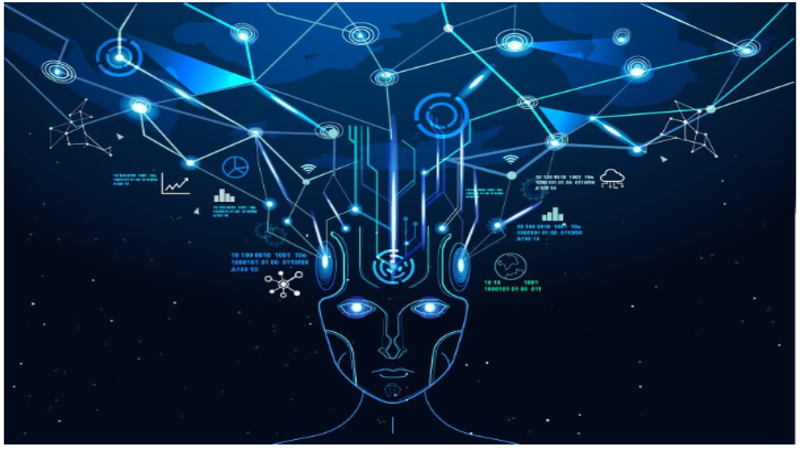
Startups are utilizing AI and Datascience to address the issues encountered in traditional financial services
The integration of artificial intelligence (AI), machine learning, and data science in technology automation has enabled the development of some of the most advanced, efficient, and secure systems in the financial services industry. This technological revolution has had a major impact on the finance sector, with the emergence of numerous startups that are utilizing AI and data science to make better data-driven decisions, predict cash flow events, assess creditworthiness, detect fraud, automate repetitive tasks, and more.
As a result, financial inclusion has increased significantly, enabling previously un-serviced populations to gain access to a variety of financial services. According to projections, global spending on AI is expected to reach over $110 billion by 2024, almost double of the total for 2020.
The application of Artificial Intelligence (AI) in the financial industry is growing, with AI being used to improve lending and advance algorithmic trading. AI and Machine Learning (ML) are being employed by large banks, fintechs, and NBFCs to speed up processes and accurately assess potential borrowers. These technologies provide institutions with the advantage of unbiased decision-making, while also enabling borrowers without an extensive credit history to access capital and prove their ability to repay loans.
Moreover, AI techniques such as evolutionary computing, deep learning, and probabilistic logic are helping traders strategize upcoming trades, increasing predictive capacities. AI-systems also help traders track risk exposures, adjust or exit the position in a fully automated manner, eliminating the need for human intervention. Furthermore, NLP techniques leveraged in AI-systems allow traders to accurately identify sentiments from sources like Twitter, Reddit, news articles, etc.
AI-based solutions are revolutionizing the way financial institutes are combating fraud. Instead of relying on hardcoded rules created by domain experts, these algorithms can adapt and evolve over time to detect anomalies in transaction data. This data can include past behavior, location, and spending patterns. Beyond fraud prevention, AI is also being used to provide personalized banking experiences. Chatbots are becoming popular, utilizing advanced NLP techniques to understand customers’ needs.
Additionally, banks are leveraging data to analyze spending behaviors, offering tailored financial advice to help customers reach their goals. AI is making it easier for banks to offer tips on reducing monthly expenditures and predicting future transfers. With AI and ML, the possibilities for improving customer experiences are endless.
AI has revolutionized the way process automation is carried out. By leveraging Optical Character Recognition (OCR) and other data processing technologies, AI-based systems can simplify the extraction, digitization, and processing of documents with great efficiency, thereby saving time and resources. Additionally, AI-based systems can provide financial institutions with increased regulatory, supervisory, and oversight capabilities.
Moreover, AI, Machine Learning (ML) and data science have contributed to the financial industry by making it more robust and resilient. These technologies enable credit underwriting at a cheaper cost, enable algorithmic trading with added complexity, and enable secure, efficient, and transparent operations. Furthermore, AI has enabled financial inclusion, thus providing people with more opportunities to achieve financial independence while improving the quality of products and services.



